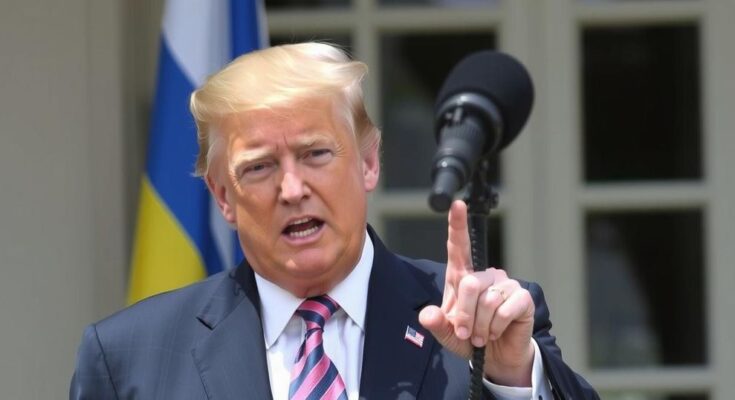Following the fall of Assad in Syria, President-elect Trump urged Russia to cease its war in Ukraine, indicating a potential shift in American foreign policy amidst changing global events.
In the wake of Syrian President Bashar al-Assad’s unexpected regime collapse, President-elect Donald Trump took proactive measures against Russia by urging the nation to terminate its ongoing military engagement in Ukraine. Trump’s political maneuver arises amid shifting global dynamics and emphasizes his administration’s anticipated foreign policy direction, particularly regarding U.S. relations with Russia and commitments to international conflict resolution.
The dynamics within the Syrian conflict and the resultant power shift from Assad’s governance have profound implications for global geopolitics. Russia’s support for Assad and its concurrent involvement in Ukraine signifies a complex interaction of alliances and conflicts. Understanding these intertwined issues is essential to grasping the nuances in Trump’s diplomatic strategy as he positions his administration in relation to both Russia and prolonged European instability due to the Ukraine war.
In summary, the recent developments surrounding Assad’s regime position President-elect Trump in a critical role to influence Russian foreign policy, particularly concerning the war in Ukraine. This transition highlights the complexities of Middle Eastern geopolitics while demonstrating Trump’s attempt to reshape the United States’ international relations.
Original Source: www.washingtonpost.com




